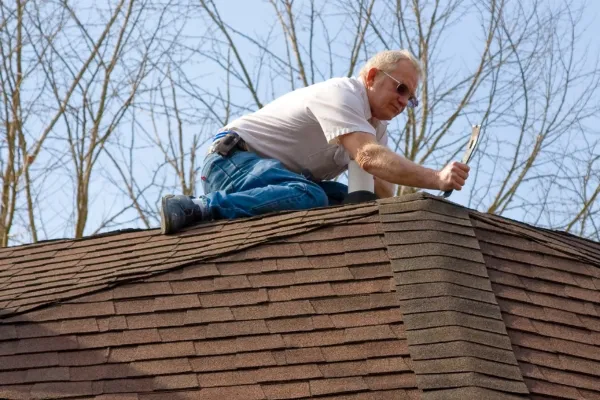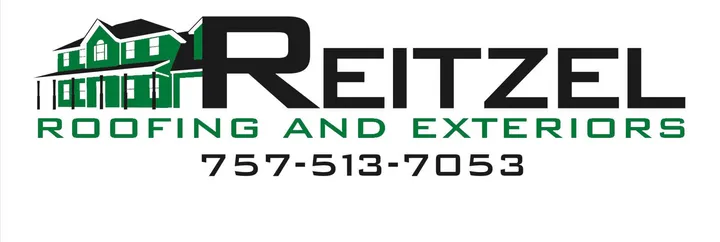LEARNING CENTER
CHECK OUT SOME OF OUR LATEST ARTICLES FROM IN OUR LEARNING CENTER

Roof Damage 101: What Your Insurance Does (and Doesn't) Cover
If you're a homeowner, one of the biggest investments you have is the roof over your head. Like anything else in your home, it's subject to wear and tear. Sometimes minor damage can be repaired, but there may come a time when the entire roof needs to be replaced. That's a big unexpected expense if your insurance doesn't help out!
So does your homeowners insurance cover roof damage? The short answer is sometimes. But there are a lot of specifics on what they will and won't pay for. I'll break it down so you know exactly what you can expect if you need to file a roof damage claim.
Wind and Hail Damage
Let's start with damage from weather events, since storms are a common roof damage culprit. High winds can rip off shingles and other roofing materials. Hail can dent and fracture them. If the damage is extensive, the whole roof system may be compromised and need replacement.
The good news is homeowners policies generally cover wind and hail damage. So if a storm wrecks your roof, insurance should help pay to have it repaired or replaced.
But - and this is a big but - you'll only be reimbursed for the current depreciated value of your roof. Say you paid $10,000 to install a new roof five years ago. The roof is now worth around $7,500 based on its useful lifespan. If a storm destroys it today, your insurer will pay out around $7,500 towards a replacement, minus your deductible. You'd have to cover the remaining cost.
Most homeowners are unaware of this depreciation factor. Make sure you understand how it works with your policy. Ask your agent how replacement cost value and actual cash value are handled.
Normal Wear and Tear
Now imagine your roof starts leaking because the shingles are worn out and brittle from years of sun exposure. Or maybe the flashing around the chimney needs to be replaced after decades of reliable service. Do you expect your insurance to pay for a new roof or repairs in this case?
Unfortunately, the answer is no. Homeowners insurance does not cover damage due to normal wear and tear or deterioration over time. Things like warping, cracking, peeling, and loss of waterproofing are considered results of aging. Since they happen gradually over many years, insurance won't reimburse you for related repairs or roof replacement.
Likewise, issues like mold, mildew, or rot caused by years of exposure are excluded from coverage. These problems develop over long periods of moisture seeping through wear and tear damage. So insurance won't pay for removing moldy roofs or rafters.

Improper Installation or Maintenance
Did you try to patch a leak yourself or hire a cut-rate roofer who messed up the repair? Don't expect your insurance to bail you out! Damage from improper installation, repairs, or maintenance is also excluded from homeowners policies.
The same goes for issues arising from lack of maintenance. If leaves and debris build up and cause deterioration, or you put off replacing loose shingles for years, any resulting damage won't be covered either. Insurance expects you to properly maintain your roof over its lifetime.
Other Exclusions to Watch For
Beyond wear and tear and improper workmanship, most insurance policies exclude a few other roof damage causes:
Settlement: If the roof framing or foundation settles over time and distorts roof materials, it's not covered.
Faulty materials or design: Damages relating to defective materials or improper roof design are excluded.
Vandalism: Deliberate acts like someone stomping on your roof won't be covered by insurance.
Removing debris: The cost of cleaning branches, leaves, and other debris off the roof aren't covered either.
As you can see, there are quite a few scenarios where homeowners are on the hook for roof damage costs. Make sure to review your policy exclusions closely so you aren't caught off guard. Also inspect your roof regularly for any signs of wear and address them promptly.
When to File a Claim
After a major storm or sudden event like a fallen tree limb, contact your insurance company right away if you suspect roof damage. An adjuster will inspect and determine if the damage is covered.
If it is, the insurer will arrange for a roofer to provide repair estimates or recommend replacement. You can choose to have your regular roofer handle the work, but the insurance company may want an approved contractor they have negotiated pricing with.
The adjuster will work with the roofer throughout the claims process. As long as you use an approved roofer, the insurance company will pay them directly after the work is completed. This ensures covered damages are repaired professionally and paid for per your policy terms.
Getting the Runaround?
In an ideal world, the claims process goes smoothly. But insurance providers don't always make it easy, especially if the damage review is unclear-cut. You may get the runaround from adjusters or lowballed on claim payouts.
If you feel you're getting the brush off on a rightful roof damage claim, be politely persistent. Escalate the issue to a supervisor if needed. Have your roofer provide documentation on the necessary repairs and why they are warranted.
You can also reach out to state regulatory agencies for assistance in resolving disputed claims. Just make sure to document all correspondence and phone calls with your insurer. That creates a paper trail if the disagreement can't be resolved amicably.
Time for a Roof Replacement?
If your roof is nearing the end of its useful life, a major claim could be your nudge to replace it. Keep in mind you'll still pay the depreciated value, so start budgeting for a replacement.
Rather than stick with the same roof type, consider upgrading to a longer-lasting but still affordable option like metal. This can save money over time by reducing repairs.
And be proactive with inspections and maintenance as your roof ages. Catching minor damage early is your best bet for extending its life at the lowest cost. Your roof is one of your home's most important assets - protect it accordingly!
Hope this overview gives you a better grasp of what you can expect your home insurance to cover in various roof damage scenarios. Reach out if you have any other questions! I'm always happy to help homeowners understand their policies.

Our Services
Roof Repairs
Roof Leaks
Roof Storm Damage
Roof Replacement
Residential Roofing
Commercial Roofing
Siding
Trim
Windows
Fencing
Decks
Resources
Learning Center
Financing
Areas We Service
About Us
Contact Us
Privacy Policy
Copyright © 2022 Reitzel Roofing and Exteriors
All Rights Reserved

Our Services
Resources








